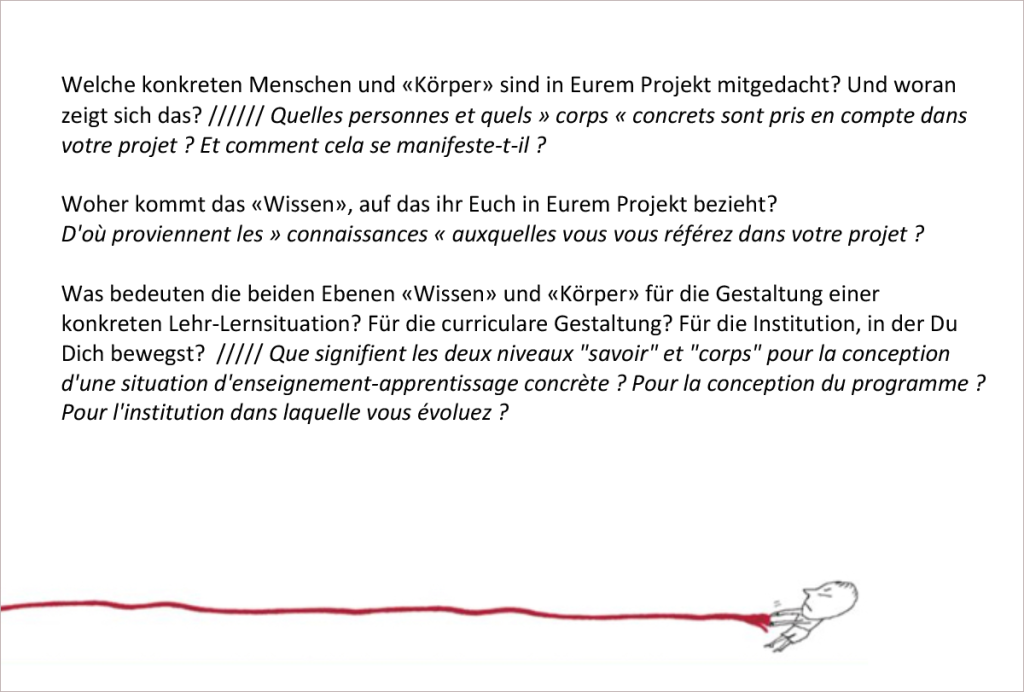Diversity in STEM (2022)
Atelier “Interventions, irritations, dialog”
Network conference “National Network MINT” in Fribourg on May 6, 2022
The STEM disciplines (mathematics, computer science, natural sciences and technology) have only recently begun to consciously address issues of diversity. Despite the positive reference to diversity, the evidence of social diversity is rarely mirrored and rendered visible in the field of the didactics of these disciplines. Because of a lack of awareness of the impact of image and language based vocabulary which is not sensitive to changing cultural contexts, social exclusions are reproduced and access is denied.
The aim of the opening impulse for the “Diversity in STEM” conference was to invite reflection about differing positions in regard to topics of diversity, relating these to the respective disciplines. Alternating between input, action and discussion, the participants learned about the “Critical Diversity Literacy” approach in connection to disciplines which seemed at first glance neutral, yet are traversed by histories which reflect power dynamics of knowledge systems in their varied historic emergence.

The invitation was worded as follows:
“Today we invite you to a collective process of reflection. In three atelier situations we shall create possibilities to encounter together blind spots and make these available to joint discussions. Dealing with the topic and the complexity that the concept of diversity entails can make us feel powerless and fall into a certain paralysis. We suggest that there are ways to counter this inability to act through a collaborative reflection/doing praxis. We do recognize the fact that the discourse surrounding diversity is all too often reduced in a very straightforward way to a magic formula of ‘managing diversity’ and we wish to take distance from this notion that a standardized toolbox could be applied, because diversity is not a ‘problem’ that needs to be ‘fixed’ but rather a reality in which we are immerged. We thus want to encourage you to explore with us various paths of a search for blind spots – for blind spots that obscure our view of our own privileges – to open up a view towards the calls from outside for social justice to be realized in our education institutions and also towards the (re)discovery of the desire to learn new and different perspectives and unlearn normed attitudes.”